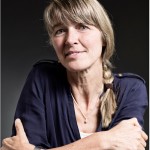Healthy ageing: vital seniors who are longer independent
Barbara, Paul, Robert and Linda are all around the age of 70. They live an active life and want to stay in their own homes as long as possible. Wageningen University & Research has the knowledge to respond to the needs of this diverse target group. In this article, I focus on healthy ageing and Wageningen University’s research programmes.
The life expectancy of baby-boomers such as Barbara, Paul, Robert and Linda is generally higher than previous generations and they are keen to enjoy their ‘extra years’. There are, however, major differences in vitality, health, eating habits and healthcare requirements. Companies, government bodies and healthcare professionals responsible for developing food products, information campaigns and/or lifestyle programmes for older people must take all these factors into account. Wageningen University & Research provides the in-depth knowledge needed.
Meet Barbara, Paul, Robert en Linda
Barbara is 65, divorced, proud grandmother of three grandsons. She enjoys life to the max. She does yoga, has joined a cooking club and goes on long-distance trips twice a year. Healthy, tasty food is important for her. She is quite upset to notice her blood pressure is a bit on the high side. She seeks out suitable recipes and tips from fellow sufferers on the internet. The sooner she gets her blood pressure down, the better – she wants to stay healthy as she grows older, that’s for sure.
Barbara’s neighbour Paul is a widower, has difficulty in walking and does not like to cook. A carton of milk, some ready-made meals and a bunch of bananas are enough for him to get through the week. In fact, he cannot even always finish everything. The community nurse grumbles that he eats too little, but Paul sees things differently. “I eat meat, potatoes and fruit, and I drink milk. Isn’t that enough?”
Robert and Linda live just a few doors down. They are in their early 70s, active volunteers and they are crazy about good food. “There’s nothing like a good steak with red wine and a French cheese platter,” Robert always says. Linda wants to take the bikes out more often and eat more vegetables and less cheese. Biking is an easy sell for Robert but he does not want to change anything about his diet. “Surely you don’t want me to start eating rabbit food in my old age.”
In-depth knowledge
Barbara, Paul, Robert and Linda represent a growing group of older people in Europe. Their stories show that there is no such thing as ‘the’ senior.
In-depth knowledge is needed to succeed in addressing the many and varied wishes and demands of this target group. And to develop dedicated food products and healthcare campaigns.
Integrated approach
Wageningen University & Research has led the way in research into the elderly, nutrition and food products for almost thirty years. We adopt a comprehensive approach, cleverly combining different fields – from nutritional physiology, sensory research, epidemiology and public health to consumer studies, food technology and IT.
We study the links between food products, eating habits and the body’s ageing process. Consider, for example, the impact of extra protein on retaining muscle mass and bone density, or the role of vitamin B12 in preventing dementia. We develop lifestyle programmes for the elderly, focusing on a healthy diet and plenty of exercise. Moreover, we look at products and how consumers experience them via our senior consumer panel SenTo. We also study ways of using modern IT applications to inform older people, living at home, about healthy food and help them devise appropriate diets.
We study the links between food products, eating habits and the body’s ageing process.
Healthy ageing
 Here at Wageningen University & Research, we expect that food products, information campaigns and lifestyle programmes aimed at the elderly will soon become a fixed item in the policies of manufacturers, government bodies and healthcare professionals. Impending scientific breakthroughs and continued developments in IT are providing golden opportunities for taking a comprehensive approach to respond to the needs and requirements of Barbara, Robert, Linda, Robert and other baby-boomers, who want to get the best out of life and stay independent for as long as possible.
Here at Wageningen University & Research, we expect that food products, information campaigns and lifestyle programmes aimed at the elderly will soon become a fixed item in the policies of manufacturers, government bodies and healthcare professionals. Impending scientific breakthroughs and continued developments in IT are providing golden opportunities for taking a comprehensive approach to respond to the needs and requirements of Barbara, Robert, Linda, Robert and other baby-boomers, who want to get the best out of life and stay independent for as long as possible.
Wageningen University & Research wants to improve quality of life. Helping the elderly to stay healthy for longer fits in perfectly with this ambition. And we are more than happy to lead the group of elderly people, manufacturers, government bodies and healthcare professionals in the quest for a healthy future.
What is your research question? Contact Wageningen University & Research: healthyageing@wur.nl or www.wageningenur.nl/healthyageing
You can also share your opinion with us, in the comment section below.

